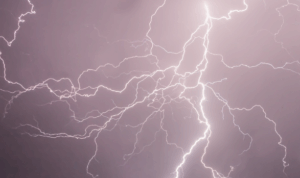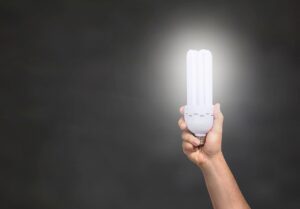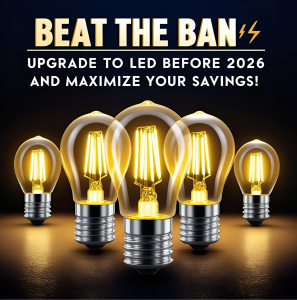Our planet’s future energy sources have been a frequent topic in conversations. Scientists, politicians, and most likely your next door neighbor have commented on the ever growing issue of diminishing non-renewable energy sources, the impact of burning fossil fuels and the changes that lie ahead in converting our energy supply to renewables. It is apparent that soon we will undergo an energy transition from fossil fuels to some alternate renewable energy source. This is largely due to the ever shrinking lifespan of our oil reserves, as scientists estimate we only have around 46-50 years left of oil supply remaining 1, and the devastating effects of climate change. How will the transition to renewables impact our future? More specifically, can renewables compare or, better yet, outperform non-renewables in regards to reliability and cost effectiveness?
Cost Reductions of Renewable Energy
First, let’s take a look at the cost reductions renewable energy will bring to individuals and business owners alike. Currently one of the most prevalent and easily acquired forms of renewable energy is solar. An old critique of solar energy was the substantial initial cost these systems required to install. This cost is continuing to fall however as more and more suppliers emerge in the market and as consumer demand continues to rise. Studies show the cost of solar modules has fallen by 99% over the last four decades 2. Average daily sunlight, electricity consumption and whether you purchase or lease your system are among a few of the factors that come into play when calculating the financial benefits of solar PV 3. A study done by the National Energy Board in 2019 found that solar does provide electricity cost savings, specifically in Ontario, Nova Scotia and Prince Edward Island 4. It must also be noted that while solar energy systems require an initial purchase that some consumers may view as costly, although as mentioned above this cost is continuing to drop, the breakeven point (the point at which your solar system is paid off via the electricity costs you have saved over the years) is continuing to shrink. This means you can acquire free energy faster these days by switching to solar, rather than paying ever increasing energy costs from traditional sources. In the long run, renewables are much less expensive than their counterpart. Lastly, provincial governments are doing their part to help those making the switch to renewable reap the benefits. Specifically in Ontario there is a rebate for small to medium sized businesses that invest in green technology under the name Climate Action Incentive Fund. To learn more, visit this page.
Reliability of Renewable Energy
What about the reliability of renewable energy in the event of increasingly common severe weather events? Distributed power is spread over vast areas and services smaller regions, non renewable energy is generally much more centralized and requires a vast distribution network more prone to severe weather disruptions. In the event of severe weather systems compromising certain geographical areas, distributed renewable energy decreases the risk of entire regions losing power. This instead impacts smaller geographical areas and creates faster rebound times for those areas to get back on their feet. Take Hurricane Florence in North Caroline for example. Renewable energy, specifically solar is growing quickly in this region of the United States. Florence was a massive test for renewable energy to see how it held up in severe weather systems compared to its counterpart, nonrenewable energy. Two of the largest solar companies in this area reported almost no damage in their initial inspections 6. When a power line breaks, this can cause mass energy outages. With less centralized systems however such as solar, areas are far less exposed to these outcomes and ultimately much more resilient in the face of weather events.
Overall, individuals should be excited about the renewable road ahead. The implementation of renewable resources decreases energy bills, creates limitless energy and provides energy security. While many studies and real life examples show renewable energy can effectively compete with traditional sources, and in many cases outperform them, there is still resistance to the idea of owning and controlling your own source of energy. Hopefully by providing more and more examples of how renewables can benefit you, your home, your company, your city and the future of the planet, we can speed up the transition and make a meaningful difference. We will be posting more on the technology and the benefits in future posts and if you have any questions or comments, please feel free to reach us at info@daisyenergy.ca. Together we can make a difference!
References
- Sadorsky, Perry. “Some future scenarios for renewable energy.” Futures 43, no. 10 (2011): 1091-1104.
- Chandler, David L., and MIT News Office. “Explaining the Plummeting Cost of Solar Power.” MIT News, November 20, 2018. http://news.mit.edu/2018/explaining-dropping-solar-cost-1120.
- “Benefits of Residential Solar Electricity”. gov. (n.d).
- National Energy Board. “The Economics of Solar Power in Canada.” NEB – The Economics of Solar Power in Canada – Executive Summary, October 18, 2019. https://www.cer-rec.gc.ca/nrg/sttstc/lctrct/rprt/cnmcsfslrpwr/index-eng.html.
- Climate Change Canada. “Government of Canada.” Canada.ca. Government of Canada, September 5, 2019. https://www.canada.ca/en/environment-climate-change/services/climate-change/carbon-pollution-pricing-proceeds-programming/climate-action-incentive-fund.html.
- Gearino, Dan. “Solar Energy Largely Unscathed by Hurricane Florence’s Wind and Rain.” Inside Climate News. (2018).




































